Avocado Oil: The Healthiest Cooking Oil You’re Not Using Yet
What if you could slash inflammation, reduce cellular damage, boost antioxidant absorption by 400%, decrease body fat (even dangerous belly fat) and protect your liver – all with a bottle of cooking oil?
Sound too good to be true? It’s not.
In fact, avocado oil is one of the healthiest cooking oils available. But if you’re like most people, it’s a culinary oil that you’re probably not using.
Today I’ll give you eight good reasons why you should add this amazing oil to your cooking repertoire. I’ll show you the many ways it trumps olive oil and why avocado oil is the “gold standard” of cooking oils.
And as for the silky, rich, delightful flavor? You’ll just have to buy a bottle to experience that for yourself. So, let’s take a look at what makes avocado oil an epicure’s dream and a healthy chef’s must-have.
Avocado Oil Fights Inflammation & Protects the Heart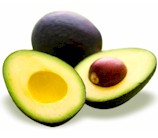
Cooking oil may not come to mind when you think about inflammation, but it should. In fact, the types of fats and oils you use every day have a big impact on the level of inflammation in your body.
You see, many common cooking oils – like vegetable oil, safflower oil, corn oil and other so called “healthy” oils – increase the inflammatory factors associated with most chronic diseases including heart disease, diabetes, cancer and Alzheimer’s.
If you want to protect your health and reduce physical aging, then your first priority should be to reduce inflammation.
Enter avocado oil. Boasting high levels monounsaturated fatty acids (MUFAs) – the fats associated with the health benefits of the Mediterranean diet – avocado oil helps to reduce harmful levels of inflammation in the body.
But the MUFAs don’t deserve all the credit. Avocado oil also contains high levels of oleic acid, carotenoids, lutein, vitamin E and phytosterols that combat inflammation too.
And if you’re concerned about heart disease and stroke, there’s another way avocado oil can help.
The phytosterols in avocado oil help to lower total and LDL cholesterol levels. But avocado oil doesn’t just help reduce cholesterol, it also protects cholesterol, which is far more important. You see, healthy cholesterol isn’t the cause of heart disease. It is damaged or oxidized cholesterol that increases the risk of dangerous plaques that lead to heart attack and stroke.
And a recent study of more than 3,000 men and women found that enjoying a MUFA-rich diet can help reduce damaged cholesterol by almost 20%!
But that’s not all that avocado oil can help reduce…
Blast Belly-Fat and Fight Diabetes with Avocado Oil
Belly fat is the bane of many bodies, not to mention a big risk factor for chronic diseases including diabetes, metabolic syndrome, heart disease and cancers.
But why is belly fat so dangerous? And how does it form?
Belly fat is an ugly symptom of a diet rich in carbohydrates and sugars. After eating these foods, blood sugar rises, triggering the production of insulin. The job of insulin is to escort sugar out of the bloodstream and into the muscles, where it can be used for energy. But once the muscle cells have had their fill, sugar gets stored somewhere else – in your fat cells!
And the results aren’t pretty – muffin tops, love handles and bra bulges. But the health consequences – including dangerous visceral fat and increased levels of the inflammatory factors linked with disease – are even less attractive.
But there’s an easy fix: Eat less carbs and sugar and more MUFA-rich foods like avocado oil. Just watch your waist whittle and those disease markers dissipate.
That’s exactly what happened in a 2007 study published in Diabetes Care. When participants ate a carbohydrate-rich diet, they accumulated belly fat, had lower levels of a weight loss hormone called adiponectin, and were less sensitive to insulin. However, when participants ate a diet MUFA-rich diet, their abdominal fat decreased, weight loss hormone levels increased and insulin sensitivity improved – and that was without any exercise or cutting a single calorie!
Other studies have shown similar results with diabetes and insulin levels. In fact, a study published in the American Journal of Clinical Nutrition reported a 3% drop in fasting glucose, a 9.4% reduction in insulin levels, and a 12% plunge in insulin resistance after six months on a MUFA-rich diet.
It has also been shown that a breakfast rich in monounsaturated fatty acids stabilized blood sugar and insulin and boosted beneficial HDL cholesterol, compared to a carb-rich breakfast.
So how can you enjoy the belly-fat blasting, blood-sugar balancing effects of MUFAs?
Enjoy these healthy fats with every meal. For example, enjoy a handful of almonds at breakfast, a salad drizzled with avocado oil for lunch and dinner of macadamia-encrusted mahi mahi and garlicky spinach sautéed in avocado oil for dinner.
So you may be wondering: “Can’t I just use olive oil?”. Sure you could, but avocado oil has several distinct advantages over olive oil, including a much higher flash point.
Fight Free Radicals and Stop Oxidation
Flash-point (or smoke point) is the temperature at which an oil degrades under heat. And if you care about preventing cancer, physical aging, heart disease, stroke and Alzheimer’s disease then you should care about flash point.
You see, when an oil reaches its flash point, nasty chemical compounds called lipid oxidation products (LOPs) form. These microscopic particles are highly unstable and set off a chain reaction of free radical damage that ravages the cells in the body.
Lipid oxidation products obliterate cell membranes and break down the collagen that keeps your skin supple and youthful and keeps your joints moving smoothly. LOPs also attack the healthy cholesterol in your body and oxidize it – making it sticky and increasing the risk for the plaque that causes heart attack and stroke. LOPs destroy the delicate lens of your eye over time, creating the cloudy, opaque film we know as cataracts. And LOPs attack the most finite of your biological structures – your DNA – leading to mutations that can cause to cancer.
So when do these nasty LOPs form? ANY time you eat a fat or oil that has been used outside of its safe temperature range. And if you’re cooking with most oils, it will happen frequently.
Let me ask you these questions:
- Does the oil in your pan ever smoke?
- Do you reuse cooking oils?
- Do you deep fry?
- Do you eat commercially fried foods… ever?
If you answered yes to any of these questions, then you’re ingesting oxidized oils and taking in LOPs. So what is the solution? Avoid rancid oils in packaged foods and restaurants and only use cooking oils at home in their safe temperature range.
And that’s where avocado oil comes in. It provides the highest flash point – a fiery 520 degrees F – of any oil! Take a look:
| All Purpose Cooking Oils: High Heat | Avocado | 520°F |
| Almond | 495°F | |
| Apricot Kernel | 495°F | |
| Extra Light Olive Oil | 468°F | |
| Canola | 460°F | |
| Palm Fruit | 450°F | |
| Safflower | 445°F | |
| Sesame (Refined) | 445°F | |
| Baking & Sautéing: Medium-High Heat | Canola | 425°F |
| Grapeseed | 425°F | |
| Extra Virgin Olive Oil | 406°F | |
| Walnut | 400°F | |
| Safflower, High-Oleic | 390°F | |
| Coconut | 365°F | |
| Soy | 360°F | |
| Light Sautéing & Sauces: Medium Heat | Butter | 350°F |
| Sesame (Unrefined) | 350°F | |
| Peanut (Unrefined) | 350°F | |
| Toasted Sesame (Unrefined) | 350°F | |
| Olive (Unrefined) | 350°F | |
| Corn (Unrefined) | 350°F | |
| Coconut (Unrefined) | 350°F | |
| Nutriment & Flavor: Cold Use Only | Borage (Unrefined) | 225°F |
| Evening Primrose (Unrefined) | 225°F | |
| Flax Oil (Unrefined) | 225°F | |
| Wheat Germ Oil (Unrefined) | 225°F | |
While avocado oil’s high flash point makes it the perfect choice for high heat cooking, it is also delicious for drizzling.
And not only does it resist free radical damage in your cooking, it fights free radical damage in your body too.
Boost Antioxidants by Up to 400%
With each human cell receiving an onslaught of 10,000 free radical attacks every day, who doesn’t want to pack more free radical fighting, age-defying antioxidants molecules into food?
I certainly do! And one of the ways I do that every day is by using avocado oil.
And it’s not just that avocado oil is so rich in antioxidants (which it is), it also acts in synergy with other foods, boosting their absorption too. Take a look:
- 3Xs More Carotenoids: Avocado oil contains nearly triple the carotenoids of olive oil. Carotenoids are potent, lipid-soluble antioxidants nutrients that help fight cancer, protect against cataracts and macular degeneration and even reduce the physical signs of aging
- Boosts Antioxidant Absorption: In addition to the carotenoids it contains, avocado oil can actually help your body absorb more of these disease-fighting compounds. A lot more! A recent study published in the Journal of Nutrition found that one cup of fresh avocado or 1-2 Tbsp. of avocado oil added to a salad of romaine lettuce, spinach, and carrots increased the absorption of carotenoids by 200- 400%.
- 25% More Vitamin E: Avocado oil contains 25% more vitamin E than olive oil. Vitamin E is a potent antioxidant that intercepts free radicals and prevents them from entering and damaging the cell. It’s also known for its ability to protect cholesterol from oxidation. Unfortunately, according to the American Journal of Epidemiology, more than 40% of the population do not get the minimum requirements of this nutrient!
- 10Xs More Chlorophyll: Contains double the chlorophyll-a and ten times the cholorphyll-b as olive oil. Chlorophyll is a green pigment with powerful detoxifying and cancer-fighting properties. Studies show that chlorophyll binds to carcinogens, preventing them from damaging DNA. Chlorophyll also boosts the body’s cancer-fighting enzymes.
And speaking of cancer prevention…
Guard Against Cancers
Fighting free radical damage and reducing inflammation are two things you MUST do to reduce your risk of cancer. That’s because free radicals attack DNA – the finite code of life – leading to cell mutations that can turn cancerous. And inflammation has a multi-faceted role in the cancer process – promoting cancer through complex molecular signaling.
It isn’t important that you understand the biology of oncology. But it is important that you understand that the foods you eat make a big difference. And avocado oil – with its unique mix of anti-inflammatory and antioxidant nutrients – is a cancer-fighting superfood.
But avocado oil doesn’t just help guard against cancer. It actually helps your body kill existing cancer cells, according to recent research published in Nutrition and Cancer. In healthy cells, avocado oil reduces inflammation and oxidation. But in cancer cells, active compounds in avocado actually trigger programmed cell death (apoptosis), reducing the number of cancer cells.
Take a look at these studies:
- MUFAs Significantly Reduce Breast Cancer: A study published in Public Health Nutrition found that women getting the most MUFAs had significantly lower risk of breast cancer than those getting the least.
- MUFAs Lower Prostate Cancer Risk: A study published in Cancer Causes and Control found that men getting eating a MUFA-rich diet had less chance of prostate cancer. And the more of these fats in the diet, the greater the risk reduction.
- Avocado Inhibits Prostate Cancer: Research published in the Journal of Nutritional Biochemistry found that multiple nutrients in avocados work in synergy to inhibit the growth of prostate cancer cells. UCLA lab tests showed that when avocado extract was added to two types of prostate cancer cells, cell growth was inhibited by up to 60%. However, purified lutein alone was ineffective. Lead author of the study, Dr. David Heber, commented:
“What’s really exciting about this study is that the results indicate that the carotenoids, vitamins, and diverse compounds in avocados might have additive or synergistic effects against prostate cancer compared with pure lutein alone”.
Another way avocado oil can help guard against cancer is by protecting the liver.
Protect Your Liver from Toxins… with a Drizzle
Your liver is your first line of defense against toxins. It’s also the organ that cranks out your “master antioxidant and detoxifier” – glutathione.
Guarding and supporting your liver is one of the best things you can do to stay youthful. And that means eating a low glycemic diet, avoiding harmful toxins, adding powerful supplements (like milk thistle) and enjoying the liver-loving foods we talk about in our Detox Diet section.
And one of the most powerful liver-loving foods is avocado.
Researchers at Shizuoka University in Japan fed 22 different fruits to a group of rats with severe liver damage. The researchers then measured the changes in specific liver enzymes which indicate damage. Of the 22 fruits, avocado had the most potent liver-protecting activity, boasting five specific compounds that reduce liver damage. Hirokazu Kawagishi , the study leader says:
“Besides offering taste and nutrition, avocados seem to improve liver health. People should eat more of them.”
And here at Healing Gourmet, we wholeheartedly agree!
How to Use Avocado Oil
Avocado oil is a versatile, delicious and easy-to-use superfood staple. It adds more flavor to your dishes and coaxes more nutrition out of each and every bite. It is rich in belly-fat blasting MUFAs. And it’s available at high end gourmet stores and discount stores (like SuperTarget) alike!
You can use avocado oil for just about any culinary purpose including: sautéing, pan-frying, baking, roasting, popping, marinating, emulsifying, dipping and drizzling.
The brand we recommend is Olivado*.
Not only does Olivado cold-press their avocado oils to retain precious nutrients, their bottles are tinted to ensure maximum long-term potency. They also instill fair trade practices. So try a bottle of this “gold standard” culinary oil today. It’s great for your body… good for the planet… and easy on your pocket too.
*NOTE: Healing Gourmet is an independent, unbiased reviewer of food products. We have no financial arrangement with any companies that we promote. We believe that’s how the health publishing should be, with no hidden interests or secret agendas.
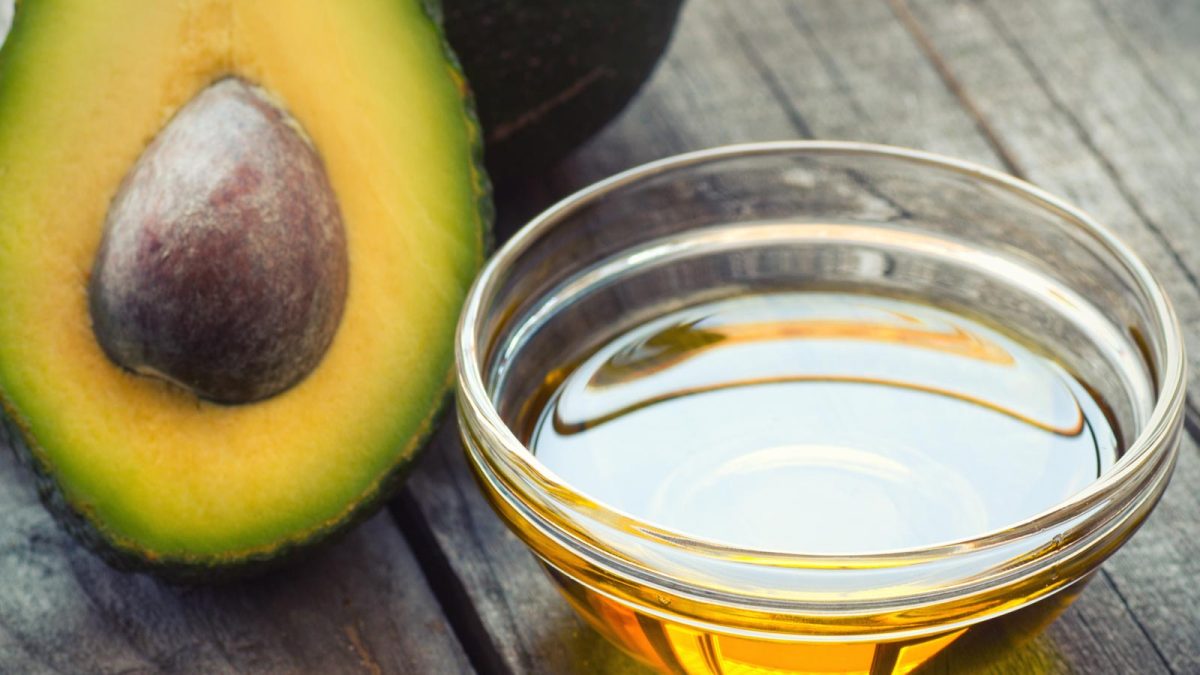
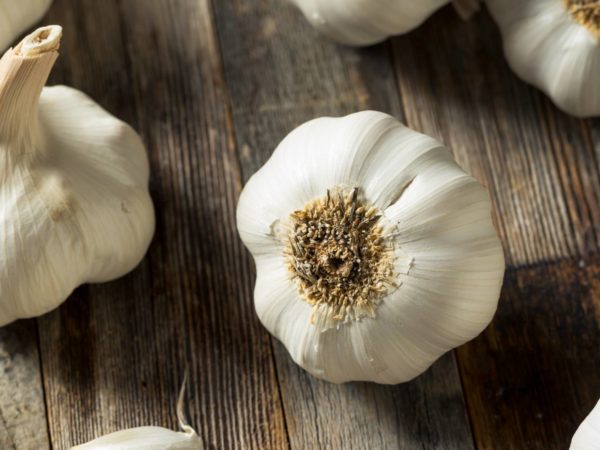
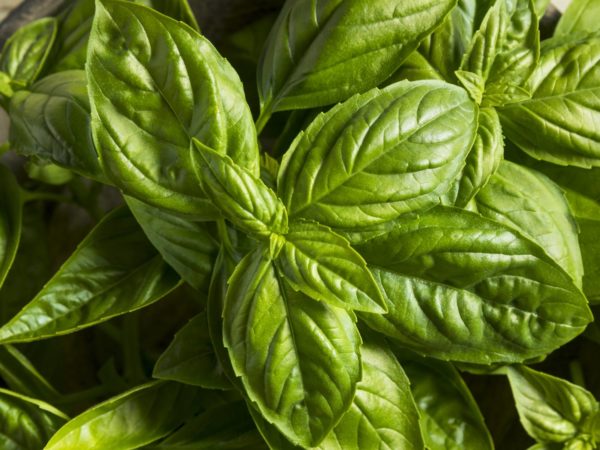
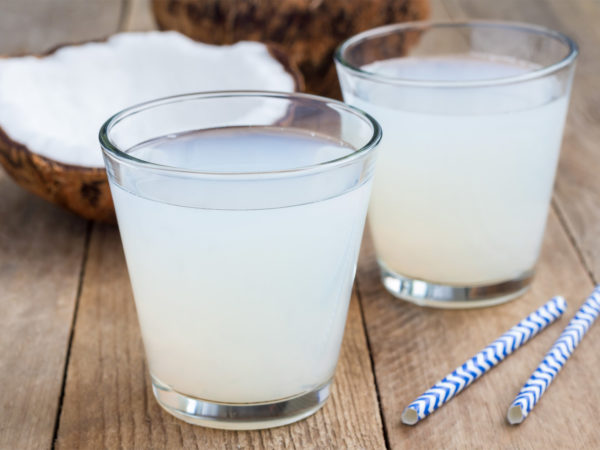
Why is this such an unknown oil?? I just recently noticed Avocado oil on the store shelf and wondered why I have not read about it nor is it listed in recipes. Apparently most chefs are not using it. Why?
Hi Nori,
Thanks for your comment.
I think avocado oil has really just become more widely available in the last 5 years or so. And it’s like anything – the more popular it becomes, the higher the demand, and eventually the easier it becomes to find… just like coconut oil.
Be Well,
Kelley
Hi Kelly,
Does the quoted flash point temperature of 520 deg F apply to extra virgin cold pressed avocado oil?
Kind regards,
Michael Fischer
Hi Kelley.
Great article. I cook with avocado oil but my mum recently saw a naturopathic doctor (very well known and highly recommended) who told her NOT to cook with it as it oxidizes. Can I ask for any studies you used for this article? I’m really trying to get to the bottom of WHY she said not to use it. I’ll ask her too, but haven’t had a chance yet and she’s in a different country to me. I’m wondering if it’s got something to do with the fact that it’s a monosaturated oil?
Cheers,
Tara
Hi Tara!
Thanks for your kind words and taking the time to write in.
Avocado oil is something that I have researched pretty extensively and love using in my own cooking. If you look at the bottom of the page under “References” you will notice about 50 citations there. Avocado oil is highly stable as evidenced by its flashpoint (the temperature at which a fat begins to oxidize, break down and generate harmful compounds). As you note, however, avocado is predominantly monounsaturated which is generally considered less stable than saturated due to the number of double bonds (saturated has more). I love cooking with saturated fats (coconut oil, ghee and tallow especially), but I have found in my own personal experience that coconut oil seems to smoke faster than avocado oil. Of course, there are a number of factors at play here. How much oil is used at what temperature? A larger surface area will bring oil to a higher temperature faster, thus speed smoking. Also to consider: What brand of avocado oil and how was it processed?
In general, for ANY oil or fat, if it smokes in the pan – throw it out! You want your oil just barely shimmering before you add your food for that sauté or sear.
Hope this helps!
Be Well,
Kelley
Hi Kelley,
How good article. Very inspirational! I really think that Avocados is very healthy. If I may ask, how many Kg Avocados do I need to make 1 liter oil?
Kind Regards,
Neville Brand
You said saturated fats have more double bonds. Not correct. Saturated fats have zero double bonds. The term saturated means that the hydrocarbon has the maximum number of hydrogen atoms per carbon atom. When an unsaturated fat is hydrogenated, the double bonds are broken an 2 hydrogen atoms are added for every double bond broken.
Sound would great and would benefit. Could you send my a coupon or coupon.